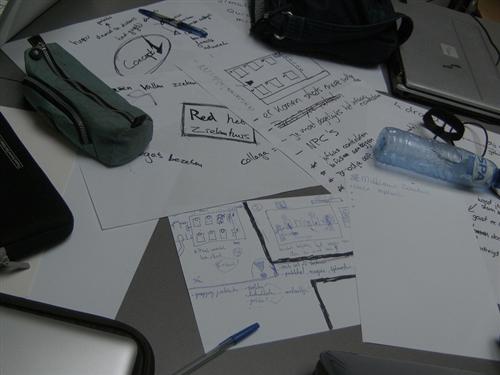
Our case covered peripheral infusion. More specifically: the fact that still a certain percentage of these infusions get complications upon implanting or shortly after. According to the employees of the learning environment at the Elisabeth Hospital, the problem was that neither nurses nor doctors seriously followed studies on new procedures. A new way of learning should encourage them to renew their knowledge and shorten out the problem in no-time. Our own research showed that doctors and nurses where really busy during the days and weren't interested in reading the same data over and over again.
Next to that, most doctors have already studied more than 6 years before even getting a degree. When the doctor is done with his study, it is conceivable, that he doesn't like getting told that there are better ways to do things. And last but not least, whilst statistics showed that there was an increased amount of flebitis cases, data did not show the root cause of this problem. E.g. what happened when a patient got it's complications. So, it could have been incorrect handling by other doctors.
Changing a person, or group characteristics is pretty hard to do, so we started out with something smaller: Teach the nurses and doctors the new information about a procedure in a preferable/ enjoyable way.

The research and product building had to be done within 10 weeks.
- Own research has to show where the problem lies.
- The product has to work.
- It has to contain a learning by doing element, (Serious Gaming).
- The product has to be a digital game.
The Design
The design was made, knowing the game had to be enjoyable and rich of information. The information is cut up into smaller portions, which all represent a small game. All these smaller games make it possible to complete the "main quest" namely: Saving the Hospital from the dreadfull Flebitis virus! The game was designed with an introduction story.

When the player plays this game, he gets the idea that he is just playing a normal game. There is a basic storyline, which keeps it fun to play. But, upon entering a room, they will have to use their expertise to solve the puzzle. When the answer is wrong, or the player isn't serious enough about the task, the game will notice this and give a correcting feedback. To complete the game, every task within the game has to be completed without making too many mistakes. If the player gets to the end without dying, the person will have enough knowledge about peripheral infusion.